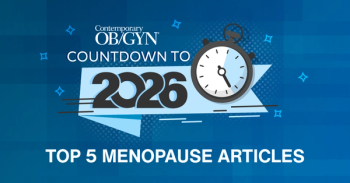
Women's Preventive Services Initiative releases guidance for preventing obesity in midlife
The Women’s Preventive Services Initiative (WPSI) has released a new clinical guideline outlining their recommendations for preventing obesity among women in midlife.
Released on August 1, the WPSI recommendation advocates for counseling women aged 40-60 years with a normal or overweight BMI to maintain weight or limit weight gain and is based on the results of a systematic review of 7 randomized clinical trials with more than 50,000 patients evaluating the benefits and harms of interventions to prevent weight gain and obesity among this patient population.
“In the past, most studies and recommendations have focused on investigating the benefits and harms of weight-loss tools used by women who were already overweight. But as a prevention strategy, these new guidelines strongly encourage healthcare providers to begin addressing the issue of weight gain and obesity risk with patients who are at normal weight,” said Kimberly D. Gregory, MD, MPH, corresponding author of the guidelines and vice chair of Women's Healthcare Quality and Performance Improvement in the Department of Obstetrics and Gynecology at Cedars-Sinai,
A national coalition of women's health professional organizations and patient advocacy representatives, WPSI was launched in 2016 by the American College of Obstetricians and Gynecologists and operates in collaboration with the US Department of Health and Human Services, Health Resources and Services Administration with the intent of improving management of health issues impacting women. With the obesity epidemic continuing to grow, the organization set its sights on providing guidance to prevent obesity among women in midlife.
The specific recommendation from the WPSI is for counseling midlife women aged 40-60 years with a BMI of 18.5-29.9 kg/m2 to maintain weight or limit weight gain to prevent obesity and its associated health conditions. The recommendation also notes counseling may include individualized discussion pertaining to healthy eating and physical activity. These recommendations were based on data obtained through a systematic review of randomized clinical trials evaluating counseling interventions for reducing progression obesity or inducing weight loss among women aged 40-60 years.
Evidence Review Highlights for WPSI Guidelines on Preventing Obesity in Midlife Women:
- 7 randomized clinical trials including 51,638 participants.
- 4 trials demonstrated statistically significant favorable differences in weight change for counseling interventions.
- 1 trial of counseling and 2 trials of exercise showed no differences
- 1 of 2 RCTs reported improved quality-of-life measures.
- Interventions did not increase measures of depression or stress.
- 1 trial showed self-reported falls (37% vs 29%; P <.001) and injuries (19% vs 14%; P=.03) were higher with exercise counseling.
“Women are at higher risk for severe obesity due to menopause and age-related physiological changes,” said Amanda Velazquez, MD, director of Obesity Medicine in the Department of Surgery at Cedars-Sinai, who was not an author of the WPSI recommendation, in the aforementioned statement. “Significant weight gain is associated with a serious risk of developing cardiovascular disease, hypertension, Type 2 diabetes, fatty liver disease and numerous cancers. That is why advising middle-aged women with normal to overweight BMI on the need to limit weight gain is critical.”
This recommendation, “
This article originally appeared on Endocrinology Network.
Newsletter
Get the latest clinical updates, case studies, and expert commentary in obstetric and gynecologic care. Sign up now to stay informed.









